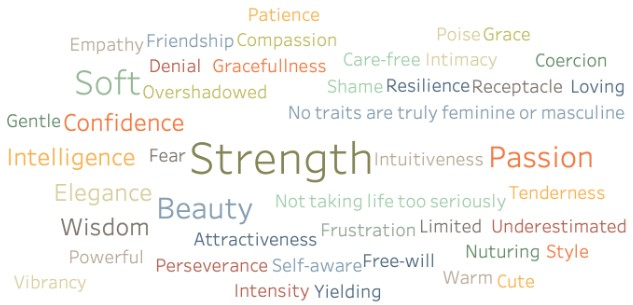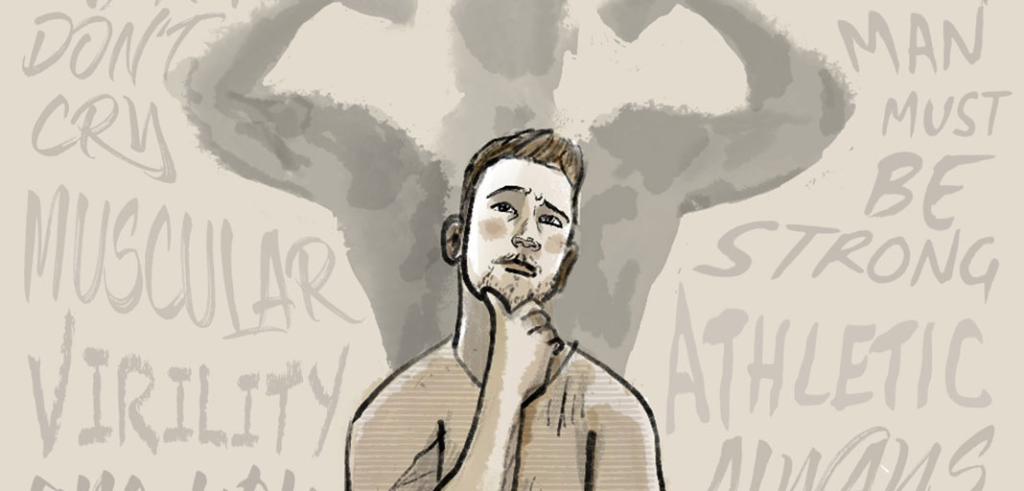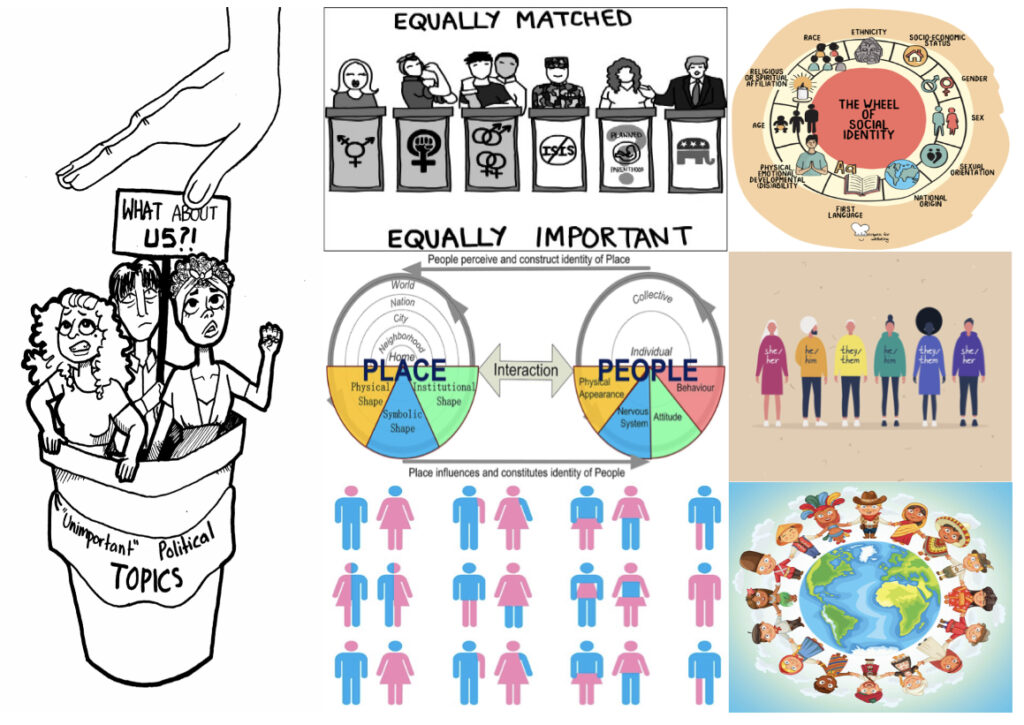Femininity is described as: qualities or attributes regarded as characteristic of women or girls. Traits traditionally cited as feminine include gracefulness, gentleness, empathy, humility and sensitivity, though traits associated with femininity vary across societies and individuals, and are influenced by a variety of social and cultural factors.

Masculinity is described as: a set of attributes, behaviours, and roles associated with men and boys. Masculinity is constructed and defined socially, historically and politically, rather than being biologically driven. The understanding of masculinity varies across time and socio-cultural contexts, and within groups and networks; and men also ‘perform’ their masculinity differently and inconsistently.

Gender identity is a person’s innate sense of their gender. It is a person’s sense of being a woman, a man, both, neither, or anywhere along the gender spectrum. A person’s gender identity may be the same as or different from their birth-assigned sex.
Cultural identities are the distinct identities of people or groups in culture or subcultural categories and social groups. Categories that make up cultural identities include sexuality, gender, religion, ethnicity, social class, or geographical region.
Social identity refers to the ways that people’s self-concepts are based on their membership in social groups. Examples include sports teams, religions, nationalities, occupations, sexual orientation, ethnic groups, and gender.
Geographical identity is an individual or group’s sense of attachment to the country, region, city, or village in which they live.
Political identity is a form of social identity marking membership of certain groups that share a common struggle for a certain form of power. This can include identification with a political party, but also positions on specific political issues, nationalism, inter-ethnic relations or more abstract ideological themes.

Identity can be influenced by many things such as: place, environment and upbringing.
Firstly, a person’s upbringing can influence their identity and how they view it as a whole for the better or the worse. For example, those who are bought up in a homophobic household or transphobic household may struggle with gender identity and consequently find it hard to express themselves later on in life as they have been surrounded by people who deem same sex relationships and trans people as ‘wrong’. This may lead to a person going through an internal battle in their head and trying to hide who they really are to the world in fear of being hated or judged. People may feel like they have to cover up who they really are in order to be accepted by society and therefore lose their sense of identity. Additionally, having a negative upbringing may also cause a person to act like those people and consequently be homophobic/ transphobic to other people as that is what they know as ‘right’. On the other hand, those who are bought up by parents who support lgbtq+ and trans people or are even same sex parents, their children are likely to be more acceptive of who they are and less likely to hide themselves from the world as they have been bought up in a setting in which they are encouraged to support and love everyone around them no matter what differences they may have. This can lead to an increased sense of identity. Lastly, upbringing can influence identity as those who are bought up with parents who have stereotypical ideas about the world eg same sex marriage is wrong, will then push those ideas onto their children causing them to believe this its wrong too. This may cause an internal war in the child’s head if they discover themselves to be attracted to the opposite sex etc as they would have been told their whole life how ‘bad’ it is and then feel ashamed to express how they feel to their family, resulting in them losing their sense of identity in order to fit in.

Furthermore, environment can also influence a person’s identity and ability to express themself. For example, those who are in an environment which consists of predominantly white supremacist groups may believe that they are not worthy of having their own identity and that they should conform to the opinion of those around them as that is what is considered the norm. These opinions form a divide between the different races and could cause those who live in those areas who are a different race to feel unworthy and unable to express themselves as they will be rejected and outcast from society. Whereas those who live in a supportive, multi race society are more likely to appreciate all races and will feel more comfortable in themselves to be able to express themselves however they want as they know they won’t be judged.
